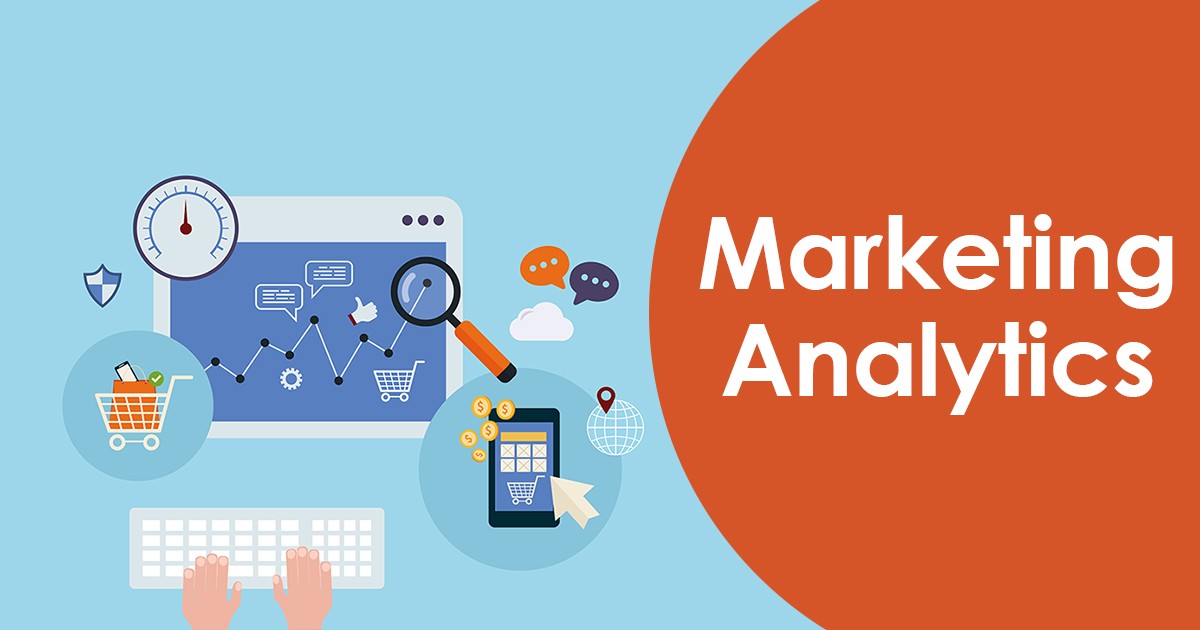Table of Contents
ToggleA Comprehensive overview :
In today’s data-driven world, businesses are increasingly relying on analytics to make informed decisions that drive growth and improve performance. Marketing is no exception. Marketing analytics has become a critical function within organizations, enabling them to understand consumer behavior, optimize campaigns, and measure return on investment (ROI). As a result, the demand for marketing analytics positions has surged, offering lucrative career opportunities for those with the right skills and expertise.
What Are Marketing Analytics Positions?
Marketing analytics positions are roles within an organization that focus on analyzing and interpreting data related to marketing activities. Professionals in these positions use various tools and techniques to collect, process, and analyze data, transforming it into actionable insights that guide marketing strategies. These roles are essential for companies looking to optimize their marketing efforts, increase customer engagement, and ultimately boost revenue.
Marketing analytics positions can vary widely depending on the organization’s size, industry, and specific needs. However, they typically involve responsibilities such as:
- Data Collection: Gathering data from various sources, including digital marketing campaigns, social media, email marketing, and customer surveys.
- Data Analysis: Using statistical methods and analytical tools to identify trends, patterns, and correlations in the data.
- Reporting: Creating reports and dashboards that present findings in a clear and actionable format for stakeholders.
- Strategy Development: Collaborating with marketing teams to develop data-driven strategies that improve campaign performance and achieve business objectives.
Why Are Marketing Analytics Positions Important?
In the second or third paragraph, it’s important to emphasize the significance of marketing analytics positions. These roles are vital because they provide the data-driven insights that are crucial for making informed decisions in today’s competitive market. Without accurate and comprehensive analysis, businesses risk making decisions based on assumptions or outdated information, which can lead to inefficient marketing efforts and wasted resources.
Marketing analytics positions play a key role in helping companies:
- Understand Consumer Behavior: By analyzing data from various sources, marketing analysts can uncover insights into consumer preferences, behaviors, and purchasing patterns. This information is invaluable for tailoring marketing messages and strategies to target the right audience effectively.
- Optimize Campaigns: Marketing analytics professionals can identify which campaigns are performing well and which are underperforming. This allows marketers to adjust their strategies in real-time, allocate resources more effectively, and maximize ROI.
- Measure Success: One of the primary functions of marketing analytics positions is to measure the success of marketing efforts. This includes tracking key performance indicators (KPIs) such as conversion rates, customer acquisition costs, and lifetime value. These metrics are essential for determining the effectiveness of marketing strategies and justifying budgets.
Types of Marketing Analytics Positions
There are several types of marketing analytics positions, each with its own focus and responsibilities. Here are some of the most common roles within this field:
1. Marketing Analyst
A Marketing Analyst is responsible for collecting and analyzing data to evaluate the effectiveness of marketing campaigns. They use tools such as Google Analytics, Excel, and various CRM systems to track performance metrics and provide insights to the marketing team. Typical duties include:
- Analyzing consumer behavior and market trends
- Identifying opportunities for improving campaign performance
- Creating reports and visualizations to present findings
- Collaborating with marketing teams to develop data-driven strategies
2. Data Scientist in Marketing
Data Scientists in marketing focus on more advanced analytics techniques, such as machine learning and predictive modeling. They work with large datasets to identify patterns and trends that can inform future marketing strategies. Their responsibilities may include:
- Building predictive models to forecast campaign outcomes
- Analyzing customer segmentation and targeting
- Conducting A/B testing to determine the most effective marketing strategies
- Developing algorithms to optimize marketing automation
3. Marketing Data Analyst
A Marketing Data Analyst specializes in interpreting data related to customer interactions, sales, and campaign performance. They focus on extracting actionable insights from data to help marketing teams make informed decisions. Key responsibilities include:
- Analyzing data from multiple sources to assess campaign effectiveness
- Identifying key performance metrics and tracking them over time
- Providing recommendations for optimizing marketing efforts
- Supporting the development of data-driven marketing strategies
4. SEO Analyst
SEO (Search Engine Optimization) Analysts are responsible for analyzing and optimizing a company’s online presence to improve search engine rankings. They focus on data related to website traffic, keyword performance, and backlink quality. Their duties often involve:
- Conducting keyword research to identify high-performing search terms
- Analyzing website traffic and user behavior
- Monitoring and reporting on search engine rankings
- Recommending on-page and off-page optimization strategies
5. Social Media Analyst
Social Media Analysts focus on data related to a company’s social media platforms. They track metrics such as engagement rates, follower growth, and the effectiveness of social media campaigns. Their role involves:
- Analyzing social media data to assess the performance of posts and campaigns
- Monitoring trends in social media and adjusting strategies accordingly
- Providing insights into audience behavior and preferences
- Recommending ways to improve social media engagement and reach
Skills Required for Marketing Analytics Positions
To succeed in marketing analytics positions, professionals need a unique blend of technical and analytical skills. Here are some of the key competencies required:
1. Data Analysis and Interpretation
The ability to analyze and interpret data is fundamental to marketing analytics positions. Professionals must be able to work with large datasets, identify patterns and trends, and draw actionable insights from the data.
2. Proficiency in Analytical Tools
Marketing analytics professionals need to be proficient in using analytical tools and software such as Google Analytics, Excel, SQL, R, Python, and various CRM systems. These tools are essential for collecting, processing, and analyzing data.
3. Statistical Knowledge
A strong understanding of statistical methods is crucial for analyzing data accurately. This includes knowledge of descriptive statistics, regression analysis, hypothesis testing, and more.
4. Critical Thinking
Marketing analytics positions require critical thinking to evaluate data, identify potential issues, and develop solutions. Professionals must be able to think strategically and apply their insights to real-world marketing challenges.
5. Communication Skills
Effective communication is key to presenting findings to stakeholders. Marketing analytics professionals must be able to create clear and concise reports, visualizations, and presentations that convey complex data in an understandable way.
6. Attention to Detail
Accuracy is essential in marketing analytics. Professionals must pay close attention to detail to ensure that data is processed correctly and that insights are based on reliable information.
Career Growth and Opportunities in Marketing Analytics
Marketing analytics positions offer significant opportunities for career growth. As businesses continue to invest in data-driven marketing strategies, the demand for skilled professionals in this field is expected to rise. Here are some potential career paths within marketing analytics:
1. Marketing Analytics Manager
A Marketing Analytics Manager oversees a team of analysts and data scientists, ensuring that data-driven insights are effectively integrated into marketing strategies. This role involves managing projects, setting objectives, and collaborating with other departments to achieve business goals.
2. Director of Marketing Analytics
The Director of Marketing Analytics is responsible for leading the organization’s overall marketing analytics strategy. This senior-level position involves setting the vision for analytics initiatives, ensuring alignment with business objectives, and overseeing the implementation of data-driven strategies across the organization.
3. Chief Marketing Officer (CMO)
For those with extensive experience in marketing analytics, the role of Chief Marketing Officer (CMO) may be a natural progression. As a CMO, you would be responsible for overseeing the entire marketing function, including analytics, and ensuring that all marketing efforts contribute to the company’s growth and success.

The Future of Marketing Analytics Positions
The field of marketing analytics is continuously evolving, driven by advancements in technology and changes in consumer behavior. Here are some trends that are shaping the future of marketing analytics positions:
1. Increased Use of Artificial Intelligence (AI)
AI is becoming increasingly important in marketing analytics, enabling professionals to analyze data more efficiently and accurately. AI-powered tools can automate data collection, identify patterns, and even predict future trends, allowing marketers to make more informed decisions.
2. Focus on Customer Experience
As businesses place greater emphasis on customer experience, marketing analytics positions will increasingly focus on understanding and improving the customer journey. This will involve analyzing data from various touchpoints, such as websites, social media, and customer service interactions, to create a seamless and personalized experience for customers.
3. Integration of Cross-Channel Data
With the rise of omnichannel marketing, the ability to integrate data from multiple channels will be crucial. Marketing analytics professionals will need to develop strategies for combining data from online and offline sources to gain a comprehensive view of customer behavior.
4. Data Privacy and Ethics
As data privacy concerns grow, marketing analytics positions will need to navigate the complexities of data protection regulations. Professionals will need to ensure that data is collected, stored, and used in compliance with legal requirements, while also maintaining the trust of consumers.
Conclusion:
Marketing analytics positions offer a dynamic and rewarding career path for those with a passion for data and a desire to impact business success. With the right skills and experience, professionals in this field can play a critical role in shaping marketing strategies, driving growth, and enhancing customer engagement.
As businesses continue to prioritize data-driven decision-making, the demand for skilled marketing analytics professionals will only increase. Whether you’re just starting out or looking to advance your career, staying up-to-date with the latest trends and technologies in marketing analytics will be key to your success. By continuously developing your skills and staying informed about industry developments, you can position yourself as a valuable asset in the ever-evolving world of marketing analytics position.







